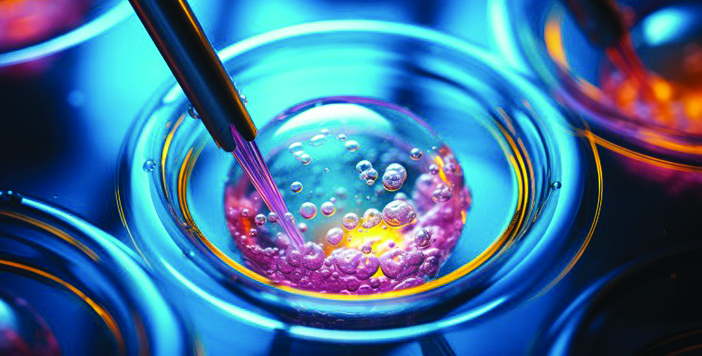Former med school dean discusses the potential implications of creating eggs and sperm from any cell.
It’s only a matter of time before technology will allow scientists to take cells from a person’s mouth or skin and, using a process called in vitro gametogenesis (IVG), turn those cells into human eggs or sperm. Which means, says Eli Y. Adashi, MD, a professor of medical science, that those eggs and sperm can then be fertilized to create an embryo—all in a lab.
In fact, it’s only a matter of time before scientists will be able to use a person’s cheek cell to custom-create any kind of cell, says the former dean of medicine and biological sciences.
“Using induced pluripotent stem cells, you could make a neural cell that would perhaps help a paralyzed person walk, or a cell that you could implant in the brain of a patient with Parkinson’s disease and, in theory, cure Parkinson’s disease,” Adashi says. “It’s essentially a replacement technology that allows you to make new spare parts when the original parts are not working.”
The possibilities are endless—and so, too, are the ramifications. This, Adashi says, is what motivated the National Academies of Sciences, Engineering, and Medicine to host a multi-day workshop discussing scientific, ethical, and regulatory implications of in vitro-derived human reproductive cells.
“The National Academy of Medicine recognizes the potential of IVG, and concluded that this was a topic worthy of their attention at this time, while realizing full well that it’s not yet at the stage of application,” says Adashi, a member of academy who chaired the committee that led the three-day program last April.
The resulting report, which is more than 140 pages long, was recently released. In the following Q&A, Adashi shares insights from the workshop and thoughts about the potential of using this advanced technology to create human sperm and eggs.




